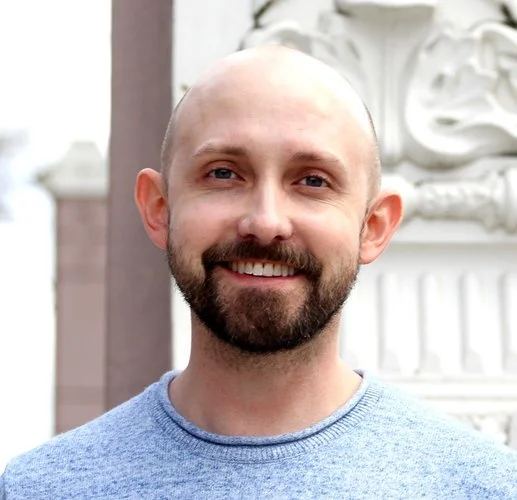Helping the Self-Critical Mind: Therapy for Anxiety in Portland
If you’re seeking anxiety therapy in Portland, chances are you know the voice I’m talking about, the one that says, “You should be doing better.” The one that pushes you harder, only to tear you down when you don’t meet impossibly high expectations. For many people living with anxiety, the inner critic is loud… and exhausting.
Anxiety therapy often brings in people who are motivated, insightful, and deeply hard on themselves. You may have read the books, tried the breathing techniques and still, the anxiety (and harsh self-talk) returns. Not because you’re doing anything wrong, but because the voice of self-criticism becomes so familiar it feels like the only way to stay in control.
But there’s another way. One that doesn’t require you to become someone you’re not. It starts with understanding how anxiety and self-criticism work together, and how anxiety therapy in Portland can help loosen their grip. With more insight into what drives them, you may even discover ways to meet those inner voices with encouragement instead of criticism.
When Self-Criticism Backfires
Many people use self-criticism as a strategy: if I’m hard enough on myself, maybe I’ll finally get it right. Maybe I’ll stop procrastinating. Maybe I’ll become the version of me who has it all together.
But self-criticism rarely leads to motivation. More often, it leads to shutdown, anxiety spikes, or an endless loop of trying and failing to meet an invisible standard. You start to associate any mistake, or even the thought of a mistake (Looking at you, future-focused thoughts.), with failure.
In therapy, we start to unpack how that voice developed. We look at what it’s trying to protect you from (because even harsh thoughts usually come from a place of fear or habit). And we begin to shift how you respond, not with sugary affirmations, but with honesty, curiosity, and eventually, more kindness.
Anxiety and the Inner Critic: A Familiar Duo
Anxiety often isn’t just about external stressors. It’s also about the way we interpret them. If your internal narrator leans toward judgment (What’s wrong with me? Why can’t I handle this?) then even small stressors can feel overwhelming.
This is especially true for clients who’ve grown up in environments where performance was linked to love or approval. Or for LGBTQ+ clients who’ve had to filter or second-guess their expression to feel safe and belonging. Over time, that vigilance becomes internalized.
In anxiety counseling in Portland, we focus on the pattern, not just the symptoms. Together, we notice when the inner critic shows up, what it says, and how it impacts your emotions and decisions. Sometimes we’ll slow things down enough to notice how your body responds (tight jaw, held breath, tense shoulders?) so you can begin to relate to your experience differently. If you’ve ever felt stuck in anxious cycles no matter how hard you try, this post on breaking free from that pattern might resonate.
An Alternative to “Tough Love”
Let’s be real: many of us weren’t taught to be encouraging with ourselves. We were taught to work harder, stay busy, and get it right the first time. And if we didn’t? Cue the shame storm.
That’s why therapy can feel so surprising at first. Instead of pushing through, you’re invited to pause. To notice what’s happening. To respond with care rather than correction.
In one session, for example, we might explore what it’s like to sit with a thought instead of reacting to it. Noticing the sentence your mind throws at you (“You’re messing this up again”) and just observing it. Like watching a car pass by on the street, rather than getting in and driving away with it. That small shift can begin to create spaciousness where there used to be pressure.
This is what I mean when I say change doesn’t have to be punishing. It can actually feel supportive.
You Don’t Have to Be “Fixed” First
One of the myths that keeps self-critical people out of therapy is the idea that they have to be “ready.” That they have to present themselves clearly, have insight, or be able to explain their story perfectly.
But therapy isn’t a performance. It’s a process.
You don’t need to have the “right” words (whatever that even means). You don’t need to present your anxiety in a way that makes sense to everyone else. You don’t need to stop criticizing yourself before you arrive, and there is no expectation that any one person will be entirely liberated from all self-criticism. In fact, that’s exactly the part we’ll work on together. If you’ve ever felt like therapy was just about managing symptoms, you might resonate with what people really learn in anxiety therapy in Portland.
Whether you’ve been in therapy before or you’re just now considering it, it’s okay to come exactly as you are. You don’t need to earn support.
Anxiety Counseling That Gets It and Gets You
Eric Goodwin, offering LGBTQ+-affirming anxiety counseling in Portland and online across Oregon.
If you’ve been looking for anxiety therapy in Portland that actually speaks to your experience (your high standards, your exhaustion, your longing to feel like yourself again) this may be the right place to start.
In my practice, I offer anxiety therapy in Portland that is mindfulness-based and LGBTQ+-affirming. Whether you’re navigating cycles of self-criticism, overwhelm, or perfectionism, we’ll work together to make space for more clarity and self-trust. Sessions are tailored to support your whole experience (thoughts, emotions, nervous system, identity) and all the parts of you that are trying to keep it together.
You don’t need to do it alone.
I offer a free 15-minute consultation to see if we’re a good fit, so you can feel out what support might look like without pressure. Sessions are available in person in Portland or online across Oregon. To schedule your consultation, call (971) 533-5590 or click here and take your next step toward relief…and toward yourself.

